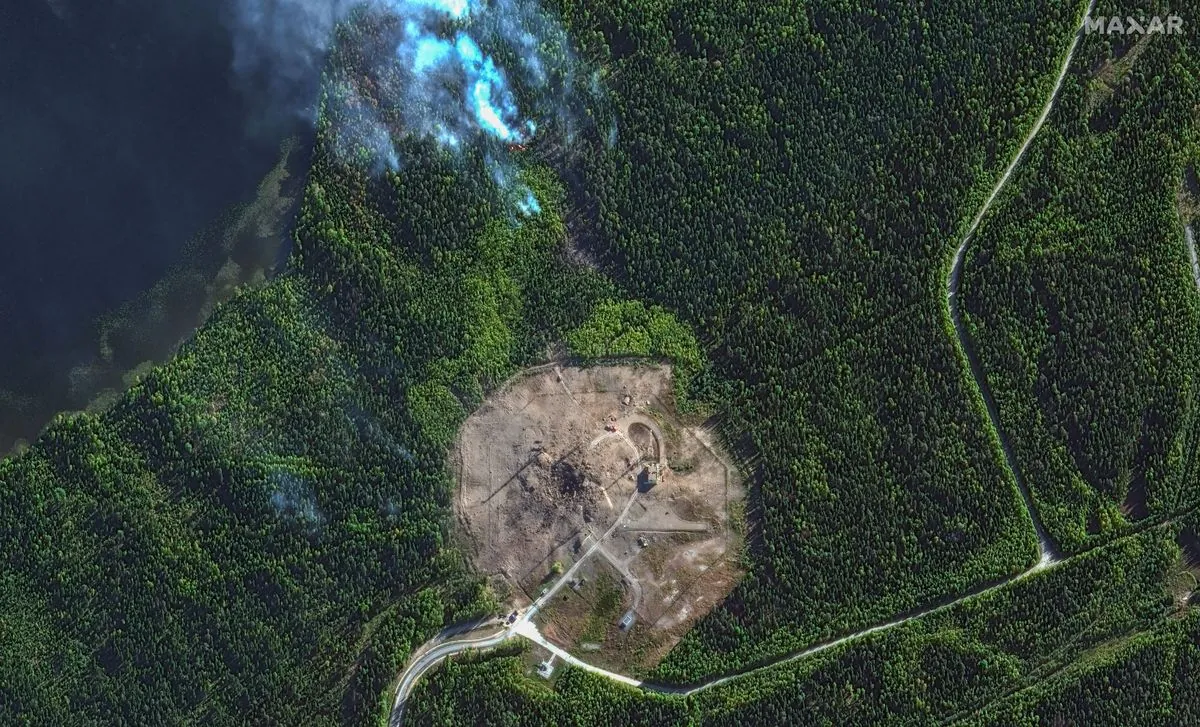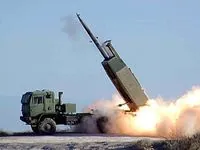Russian "Satan-2" Missile Explodes During Fourth Failed Launch Attempt
Russia's nuclear-capable Sarmat RS-28 missile, dubbed "Satan-2," exploded during refueling at Plesetsk Cosmodrome. The incident marks the fourth unsuccessful launch attempt of the weapon touted as the "world's deadliest."

Russia's ambitious nuclear missile program faced a significant setback on Saturday, September 21, 2024, as the Sarmat RS-28 missile, nicknamed "Satan-2" by NATO, failed to launch for the fourth time. The incident occurred at the Plesetsk Cosmodrome, located approximately 800 kilometers north of Moscow in Mirny, Arkhangelsk Oblast.
According to satellite imagery, the nuclear-capable missile exploded during the refueling process, leaving a substantial crater on the launchpad. The open-source investigation project MeNMyRC reported, "The missile detonated in the silo, leaving a massive crater and destroying the test site." Damage was visible to surrounding infrastructure, including roads and buildings.
The Sarmat RS-28 is a liquid-fueled, MIRV-equipped super-heavy intercontinental ballistic missile developed by the Makeyev Rocket Design Bureau. It is designed to replace the aging R-36M ICBM in Russia's arsenal and is considered a key element of the country's strategic nuclear deterrent. The missile boasts impressive specifications, including a reported range of 18,000 kilometers and the ability to carry up to 10 large warheads or 16 smaller ones.
Pavel Podvig, a senior researcher at the United Nations Institute for Disarmament Studies, confirmed the explosion, stating, "Looks like the Sarmat test was not quite successful, to put it mildly. It's a big crater."
This latest setback comes just a week after Vyacheslav Volodin, a member of Vladimir Putin's security council, issued a provocative statement regarding the missile's capabilities. Volodin claimed that the Sarmat could strike the European Parliament in Strasbourg in under four minutes, specifically "three minutes 20 seconds."
The Kremlin has heavily promoted the Sarmat program as the core of its nuclear missile arsenal. In 2018, Vladimir Putin unveiled the missile, presenting it as a replacement for the smaller original "Satan" missile. The Russian government has produced elaborate promotional materials, including computer-generated videos depicting the missile's potential for mass destruction.
However, the Sarmat's development history has been fraught with challenges. Initially planned for testing in 2015, the missile has faced numerous delays. To date, only one successful launch has been recorded, which took place in April 2022. The missile is part of Russia's broader nuclear modernization program and is expected to remain in service until at least 2070.

The repeated failures of the Sarmat missile have raised questions about the state of Russian military manufacturing. Carl Bildt, former Swedish prime minister and co-chairman of the European Council on Foreign Relations think tank, commented, "This is a sign that Russian manufacturing is seriously degrading."
Despite these setbacks, the Sarmat missile remains a subject of intense interest for Western military analysts. Its advanced features, including the ability to carry hypersonic glide vehicles and potentially evade missile defense systems, make it a significant concern for global security.
As Russia continues to grapple with the technical challenges of the Sarmat program, the international community watches closely. The outcome of this ambitious project could have far-reaching implications for global strategic balance and nuclear deterrence strategies in the coming decades.
"For your information, the flight time of the Sarmat missile to Strasbourg is three minutes 20 seconds."
This incident serves as a reminder of the complexities and risks associated with advanced weapons development, particularly in the realm of nuclear capabilities. As tensions persist on the global stage, the success or failure of programs like the Sarmat missile could play a crucial role in shaping international relations and defense strategies.


































